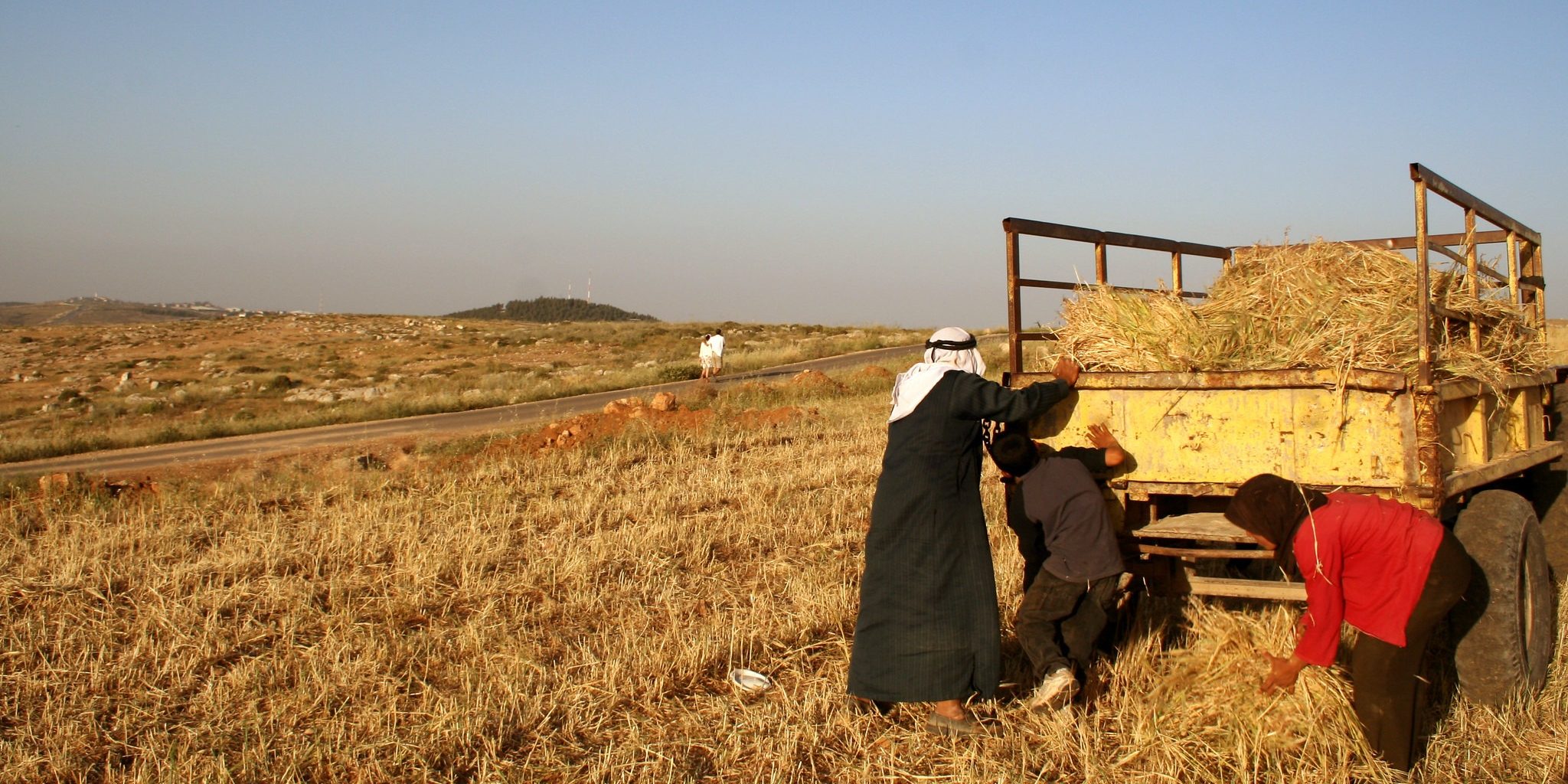Destroying the seeds of hope: How Israel prevents Palestinian freedom by denying food sovereignty
On 31 July, without any warning or legal notice, Israeli forces used bulldozers and heavy machinery to destroy a seed bank in the West Bank city of Hebron. The central control room was demolished, infrastructure was ruined, and many genetic strains of native Palestinian species were lost forever.
Ecocide has long been a central tactic of settler colonialism, and environmental devastation has made Palestinian land almost unrecognisable. As well as destroying olive groves, contaminating soil, and decimating orchards in the occupied territory, Israeli forces have heavily targeted Palestinian agriculture, damaging 86% of farmland in Gaza and making only 1.5% of cropland both accessible and arable.
Seeds, carrying the promise of new growth and the fuel for new life, also offer hope of a new future
But the destruction of agricultural resources and food supplies not only fuels a growing hunger crisis – it serves to fundamentally deny Palestinian self-sufficiency, severing indigenous communities from their ancestral practices and cultures, and decimating all hopes of reclaiming and rebuilding their native land.
Seed banks play a vital role in supporting food sovereignty for indigenous communities. Defined as the right of a people to determine their own agricultural systems and produce food that is culturally appropriate, food sovereignty is a huge threat to settler-colonial forces, giving indigenous people the autonomy to ensure their own survival. Seeds, carrying the promise of new growth and the fuel for new life, also offer hope of a new future in which Palestinians can regain and repopulate their land with species that belong in the soil.
Set up in 2003, the Hebron Seed Bank was the last remaining seed cultivation and record archive facility of its kind in occupied Palestine and was essential for preserving indigenous seed varieties adapted for the local climate. It was established and maintained by the Union of Agricultural Work Committees (UAWC), a Palestinian non-governmental organisation that Israel designated a terrorist organisation in 2021 despite criticism from the UN and human rights groups.
National farming and agriculture have long been forms of protest in Palestine against Israel’s tight control of crop production and land management
The seed bank’s destruction has been condemned as a “strategic method of biological warfare” by La Via Campesina, a global movement for the defence of indigenous food sovereignty, and one which denies communities the ability to “define their own future”. The species loss seriously threatens Palestinian food security, allegedly decimating a full cycle of Palestinian seeds intended for use by farmers, and erasing years of research and investment. Farmers are now forced to become more reliant on imported seeds, which are often less resilient to disease and unsuited to local weather conditions.
But the attack on native, ‘heirloom’ seeds is also a direct assault on Palestinian heritage and identity. As living organisms that have survived generations of settler violence and attempts to erase signs of Palestinian indigeneity, seeds carry Palestinian history in their genetic makeup. As “archives”, they represent one of the only remaining links to Palestinian traditions and culture that pre-dates settler colonialism, and their destruction by Israel seeks to utterly eradicate any indications of Palestinian history in the present day.
As the devastation in Gaza continues to dominate Western media headlines, this “hidden war” of agricultural invasion in the West Bank has been quietly intensifying. But with warfare comes resistance: national farming and agriculture have long been forms of protest in Palestine against Israel’s tight control of crop production and land management. The existence of food cooperatives and family farming work to build the foundations for food sovereignty, despite the persistent challenges of Israel’s impoverishing of food supplies, use of pesticides, and ecosystem disruption.
Israel’s persistent attacks on Palestinian food and agriculture are a direct form of settler violence
Non-violent resistance also takes the form of “guerilla gardening”, with activists planting indigenous species such as olive trees – regarded as sacred – in neglected or urban plots of land to combat possession by the Israeli state. The planting of olive trees not only symbolises Palestinian resistance and identity – it directly opposes Israel’s continued planting of non-native tree species in the ruins of demolished Palestinian villages in a deliberate attempt to cover up evidence of Palestinian history.
Food sovereignty isn’t just about preventing starvation. Israel’s persistent attacks on Palestinian food and agriculture are a direct form of settler violence, decimating resources in the present to erase the cultural traditions of the past and destroy any prospect of an autonomous future. As the genocide of the Palestinian people continues, Israel works to ensure that very little is left for those that remain. The destruction of seeds is the destruction of hope, and it must not go unnoticed.

Comments